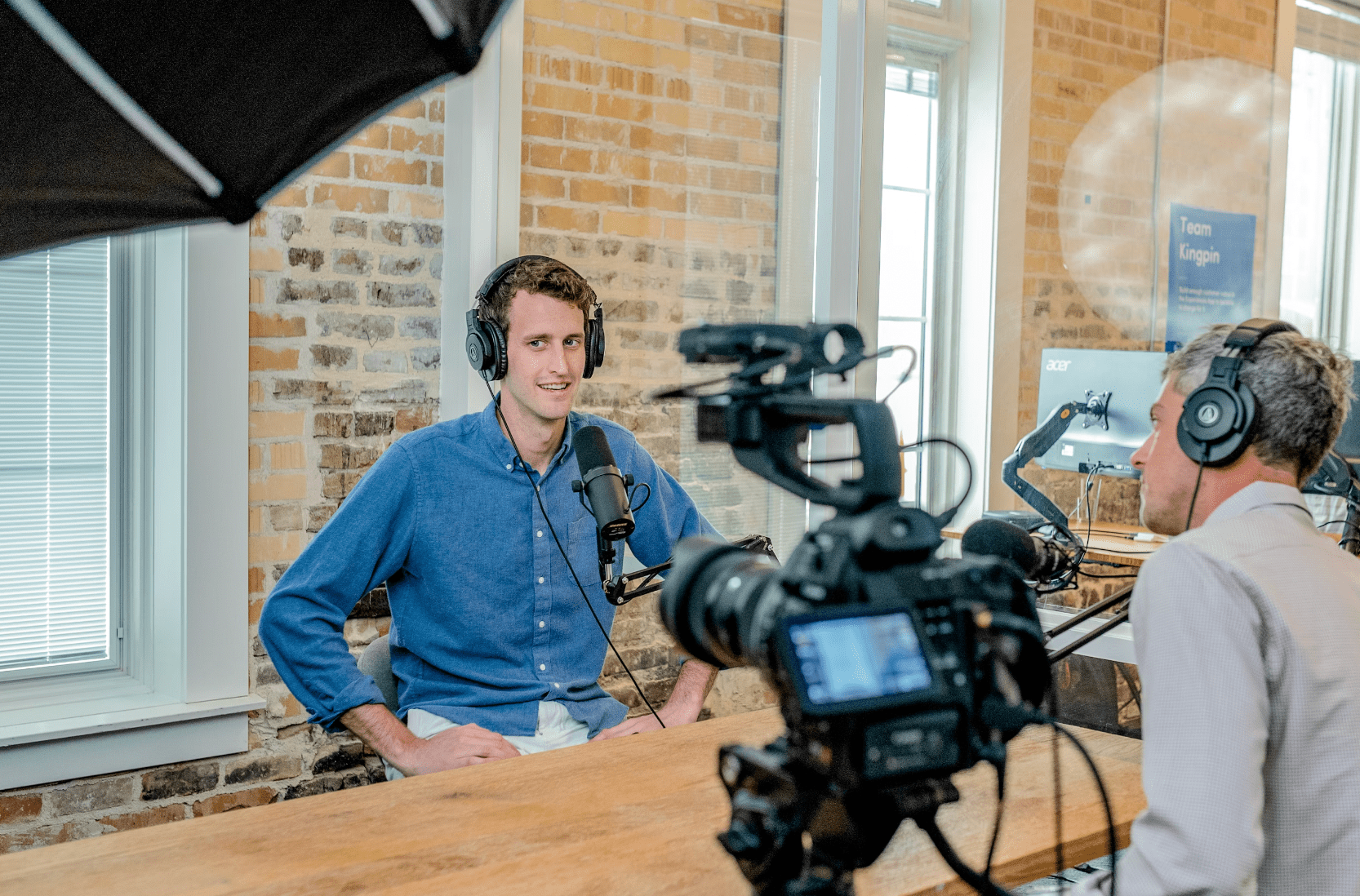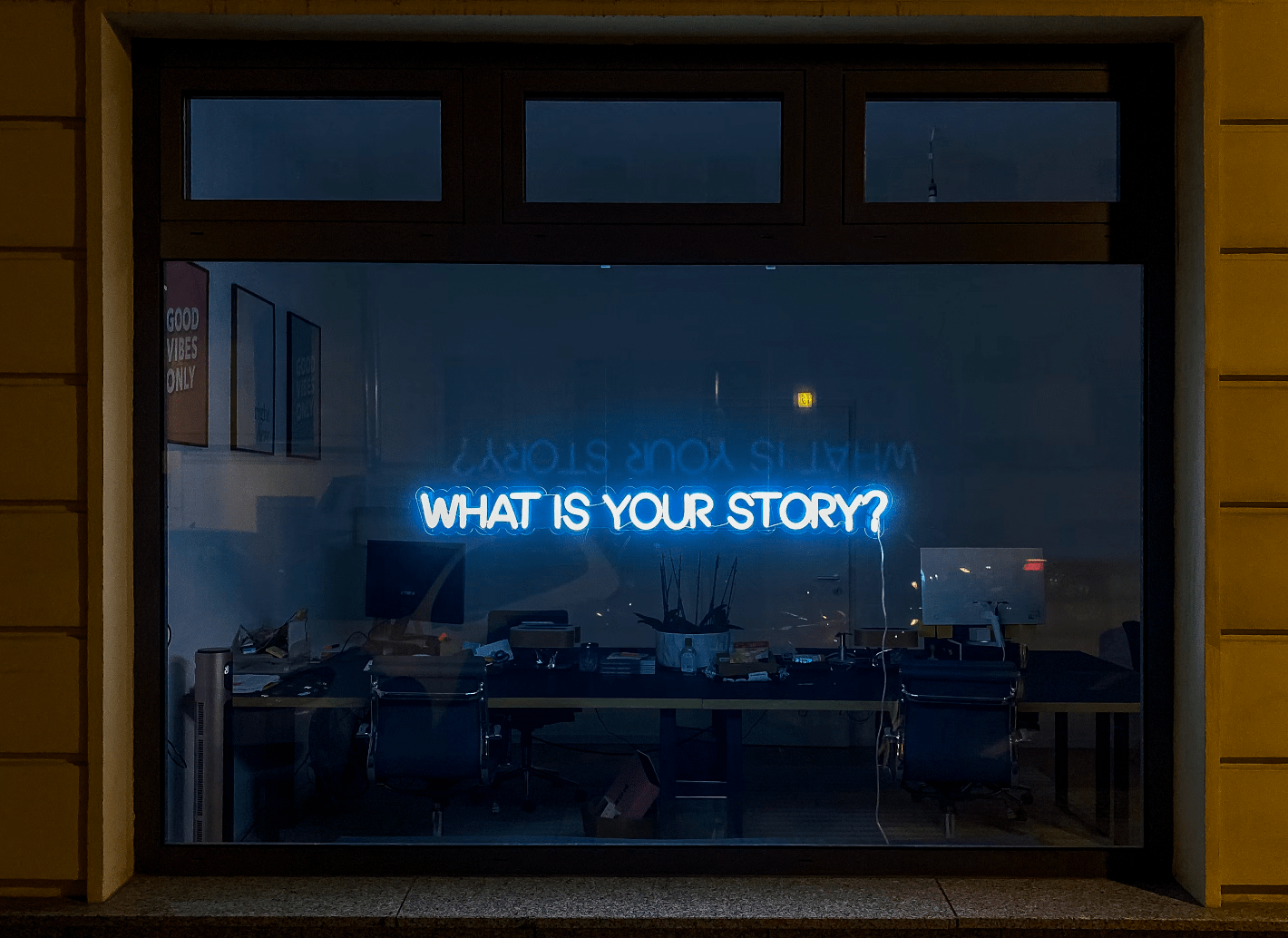Writing Your Origin Story
"My movies are not about being, but becoming” – Sofia Coppola
Your Origin Story is one of your most valuable assets in the early days of your startup.
It’s a combination of your history and your credibility – what you did to get where you are, and how certain choices, events and beliefs shaped the remarkable work you’re doing today.
Origin Stories can help you become memorable and likeable, two huge advantages as you try to create a reputation.
Your story costs you nothing (you’ve certainly paid the price for it), but it often requires a bit of refinement and intentional work.
Every startup and every founder have one of their own, and all of them should be interesting.
You have all of the material for yours, but you might not have woven it into a compelling format quite yet.
In this post, we’re going to look at some of the principles and methods for crafting an impressive Origin Story, which you’ll be able to use throughout all of your interactions.
What Exactly Is An Origin Story?
Origin Stories explain how something came to be; what made it the way it is.
It’s not your total life story, but it draws from your history and the key moments that led you to where you are now.
It focuses on the choices, inspirations and courageous moves that created your unique startup, as well as some important background details that explain why you were able to do what you did.
Sometimes we’ll summarise several years in a single sentence, then spend a larger amount of time on a crucial conversation, invitation or coincidence that changed your trajectory.
e.g. “I was a lawyer for ten years, and I kept seeing situations where…”
Accepting That You Are Interesting
Often the origin story is more relatable and engaging than an introduction as a successful, high-status, serious person.
We like stories about normal-sounding people who go on to do unusual things, and end up with unlikely success.
We like hearing about highs, lows, plot twists, and examples of how you began to do things that customers found to be valuable.
What puts founders off is the idea that “I am not that interesting, my story is boring”.
This comes up a lot, and yet we’ve never seen a founder who genuinely has a boring story – it’s more likely that they’re not telling the interesting bits.
You are not the same as your story – you can be a very dull person, but the act of starting a business is guaranteed to be noteworthy.
99% of your time and days can be unremarkable, but the 1% of unusual things you’ve done have likely planted the seeds of your startup.
A normal person would not have started your business.
Normal people play it safe, you’ve done something different.
You’ve held an interest that others don’t appreciate, or seen an opportunity others missed, or helped fix a problem that others couldn’t or wouldn’t address.
It’s also helpful to remember that you are not the judge of what is interesting - that job belongs to your audience.
You hold the pen, but they hold the highlighter.
If lots of people resonate or comment on a detail or aspect of the story, that’s a clue that there’s something particularly interesting there.
Get Ready To Tell It A Lot
You’re going to tell the same fundamental story over and over, perhaps adjusting it for different audiences, formats and scenarios.
This is not vanity, this is good communication.
It’s one of the only stories you’re going to have at first, especially before you have a large customer base and a reputation.
Well-crafted Origin Stories can be contagious, and early adopters often enjoy including these details when they’re recommending a new brand to their friends.
In some cultures, talking about yourself, your progress and success can feel uncomfortable - we worry about “Tall Poppy Syndrome” and being seen to be boasting.
Practicing your story is helpful because you can work on the right balance of credit, success, honesty, humility and dignity.
If you create a version that you know is fair, positive but not insufferable, you’ll feel good when telling it to new people.
Perfect is unhelpful - we all know that no ones story will be perfect, and a few flaws or drawbacks make your strengths easier to believe.
We naturally ask “what’s the catch?”, and there’s usually a catch, and it can often be incorporated into your story.
Think of it as a chance for proper attribution and gratitude - naming the people who gave you a chance, or gave their time/resources that fuelled your growth.
It doesn’t all have to be about you, but you’re the common character across the whole story.
If you’re hesitant, keep in mind that people are going to talk about your work, and they’re going to get details wrong.
This might be via a case of “Chinese Whispers”, or something more malicious.
Either way, you’re responsible for providing the correct details of how you built your startup, or you accept that you will likely have your story shared with a few lies or omissions.
What Goes Into My Story?
We can map out your story in whatever format works for you, so long as:
It’s clear to the listener.
We’re not jumping around chronologically, no industry jargon, putting detail in the right places and abbreviating the rest.
It has a helpful level of honesty.
Only include the details you’re happy to share, but it should have more than what you’ve got on LinkedIn.
You don’t diminish your value and your achievements, nor do you gloss over the parts that have been hard.
You are not boring and you are not perfect, and a blend of strengths and imperfections make for compelling stories.
The important task here is to explain the context to your audience.
99% of the people you speak with won’t understand the time, industry and situations you were in.
They won’t recall what resources you had access to, and what was seen as possible in that era.
For example, your early results or the formation of your company feel different if we know they were happening while you worked two jobs, were in lockdown, had small children, had limited funds or a tight timeline.
A well-funded pilot project that attracts three potential customers feels different to a scrappy social media post that turns into three customers.
Slightly ugly products are much more impressive if we hear about how you made them by hand on your kitchen table.
Perhaps you managed to assemble a collection of people who were previously seen as unapproachable.
If we can get a sense of the context and backstory, we’re better able to appreciate your achievements.
You can represent your Origin Story using:
· Sketches
· Headlines
· Icons
· Quotes
· Short Paragraphs
· Photos
· Videos
A lot of people find a visual timeline to be the easiest place to start, giving a sense of the high level details.
We can then dive deeper into certain moments with vivid stories and examples later on.
Everyone’s Favourite Details
When you listen to other people’s stories, what are the best parts?
What sentences made you lean in and pay attention?
What stories do you remember from years ago?
You can’t emphasise every detail, so here are some to consider highlighting:
People, media or events that planted a seed, which may have taken years to turn into something more tangible.
What sparked an interest, or made you question the way things were done in your industry?Your apprenticeship - the unglamorous or random work you did that gave you a particular skill set or perspective of the world.
Was it a job, or a combination of opportunities?Line in the sand moments, sudden decisions that changed the trajectory of your career.
You might have stood up to someone, refused to give in, made a scene, or defied convention.Plot twists, good, bad or weird.
The moment you first thought about starting this business - where were you, what prompted it, how were you feeling?
How the business took shape and made progress - what held you back, what have been the milestones
Who have you spoken to about the business? Where have they shown interest or hesitation? Who have been your supporters and customers?
A principle isn’t a principle until it costs you money” - moments where you did something that others might not have expected or understood
Five Simple Steps To Get Started
This doesn’t need to be daunting, it can be done as a series of simple steps, with long breaks in between:
Step 1: Write out the timeline of events and strong feelings.
This can include both work and personal milestones
Step 2: Adding more detail around the key moments in your project’s history.
These might include sales, pivots, new hires, breakthroughs, setbacks or funding relationships.
Step 3: Moments before the key moments.
What was the feeling like before something went massively right, or massively wrong? What were you weighing up?
Step 4: Emotions, beliefs and seeds planted long before.
Why were you predisposed to do what you did? Where might you have drawn on older inspiration?
Step 5: What might people find surprising?
What do people ask about, or find amusing?
By this point, you should have lots of options in front of you.
These can be tested and practiced in conversations, to see what resonates and what feels natural for your communication style.
You don’t need to ruthlessly cut it down, but rather look for the different details that capture people’s attention.
Proactive Defense
In Tools of Titans, Neil Strauss suggests three rounds of edits:
“First, I edit for me. (What do I like?).
Second, I edit for my fans. (What would be most enjoyable and helpful to my fans?).
Third, I edit for my haters. (What would my detractors try and pick apart, discredit, or make fun of?)."
I always use Eminem as an example. You can’t really criticize Eminem, because in his songs he impersonates the critics and then answers them… There’s nothing that people have said about him that isn’t already answered or accomplished in some self-aware way. So, I really want to answer the critics - their questions, their critiques - in a way that’s still fun and entertaining. That’s the idea of ‘hater-proofing’ it.”
The editing process is a chance to fix any statements that can be misinterpreted, double-check your claims, or change any language that is likely to start a silly argument online.
By all means, if you want your story to challenge the listener and make people uncomfortable, that’s fine, and can be effective in the right circumstances.
We’re trying to prevent clumsy phrasing that sparks pointless fights, when people get upset over a something you’re not trying to say.
The internet is a brutal place, and any claims that can be easily refuted should probably go.
e.g. don’t claim to be self-made if you had huge advantages.
Emphasise, but don’t embellish.
The truth is the easiest story to remember.
What Your Origin Story Tells Us
Your story goes a long way to explaining the DNA of your business – the repeating patterns that can be seen throughout all of your work.
DNA is formed incredibly early, so even if you might not have a lot of assets or wins to point to, we can still get a sense of what you’re likely to become as you grow.
Just as how human DNA consists of 23 pairs of chromosomes, your story is probably made up of 23 traits, and you’ve probably got at least half of those already identified.
If you have co-founders, they are probably contributing some of these too, so your startup DNA is not the same as yours (although there’ll be a fair bit of overlap).
Your Origin Story is likely going to influence:
· Your cause and what you care about
· Your customers and why they resonate with your work
· Your craft and how to approach new projects
· How you like to work, what lights you up and how you like to structure your time
· What you won’t stand for, and how you prefer to protest an injustice
· Your values, spoken and unspoken
· Team culture essentials, and how you’ll treat each other
· Your success metrics and what numbers are meaningful for you
· What you’d like to be known for
· Your pitch introduction
Why It’s An Asset
At the start of this post we mentioned that your story is an asset, and hopefully you’re starting to see why.
But if not, try thinking of it like this:
Origin stories help us understand why you’re able to achieve your results, as opposed to someone else who has the same possessions as you.
If anyone could do the same things you’re doing, they can’t be that remarkable.
Your story explains where you have an advantage, and these are often advantages that nobody can take away from you.
e.g. “As a fourth generation of…” or “We discovered the secret to __________ by accident” or “I was fortunate enough to have learned from __________”.
You’ll see this in most superhero movies - they need a demonstration that shows why someone else couldn’t match the protagonist, even if they were given all of the same powers and equipment.
Even without the batcave, Bruce Wayne is “The World’s Greatest Detective”.
Without the Iron Man suit, Tony Stark is a genius inventor.
Without the super serum, Steve Rogers was an incorruptible and good person.
In your case, someone with the same hard drive of intellectual property couldn’t use it like you.
Someone setting up a competitor brand in your city wouldn’t have the same relationships and connections as you.
A team attempting this in a big business wouldn’t have your personality, your unconventional approach or your deep knowledge.
They haven’t gone through what you’ve gone through, so they can’t achieve the same results.
One final thing to remember - test your stories with people who are most like your target audience, to see if they hold people’s attention.
The aim isn’t to tell funny stories or give a historical account, it’s to persuade people to trust you and take some sort of action.
Not everyone has to think you’re fascinating, but your customers need to know who you are, like what you do, and trust that you can keep your promises.





